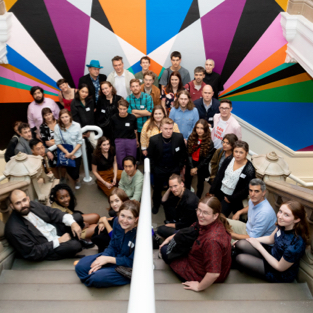Derek Jarman
Derek Jarman (b. 1942) was an English film director, stage designer, diarist, artist, gardener and author. From 1960 he studied at King's College London, followed by four years at the Slade School of Fine Art, University College London (UCL). Jarman was outspoken about homosexuality, his public fight for gay rights, and his personal struggle with AIDS.
Jarman's first films were experimental Super 8mm shorts, a form he never entirely abandoned, and later developed further in his films Imagining October (1984), The Angelic Conversation (1985), The Last of England (1987) and The Garden (1990) as a parallel to his narrative work.
